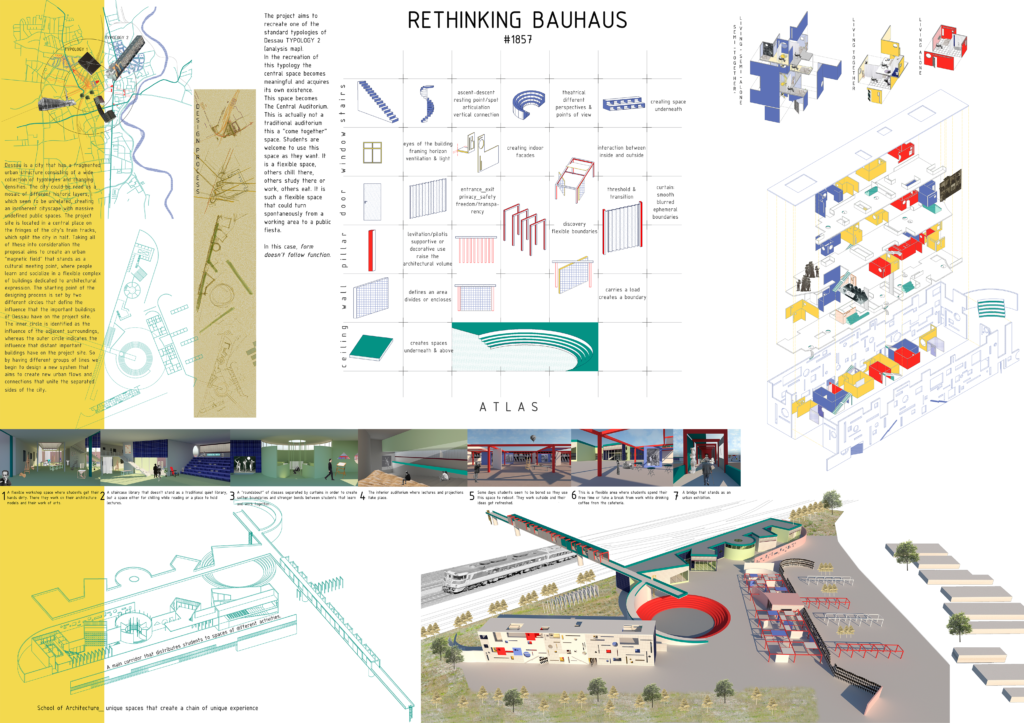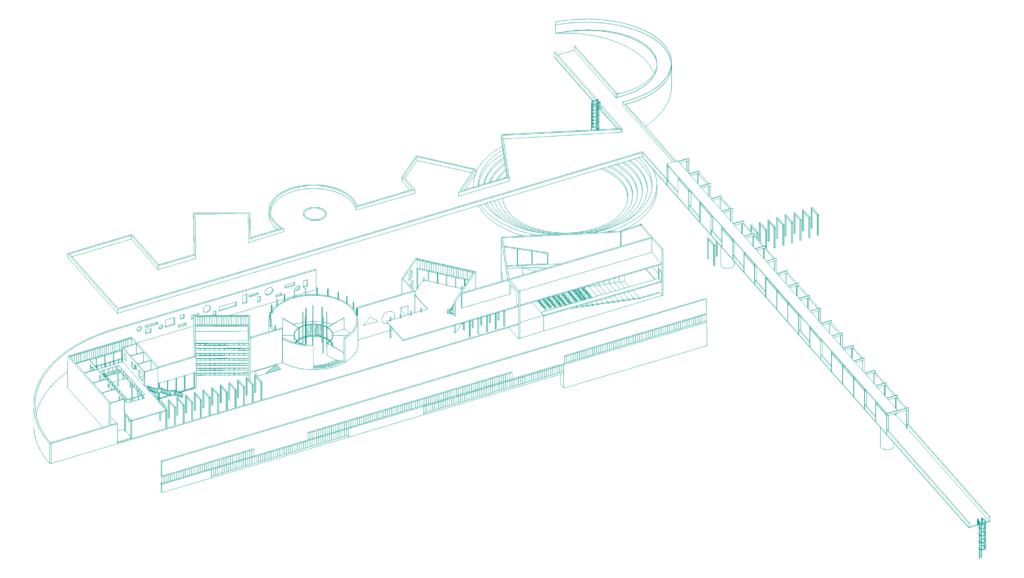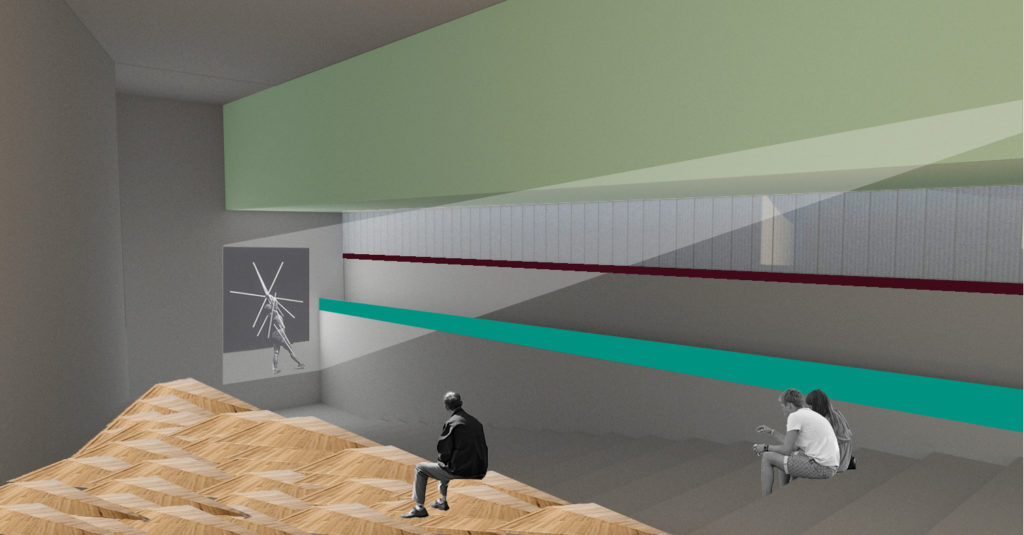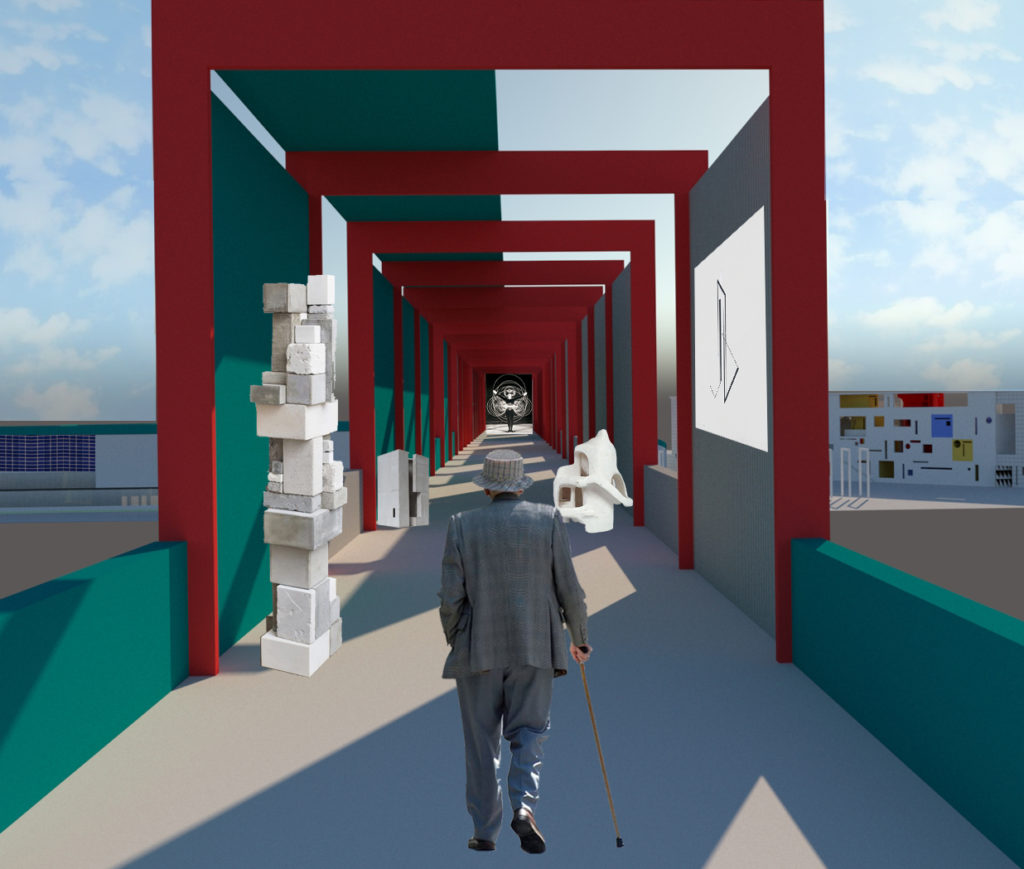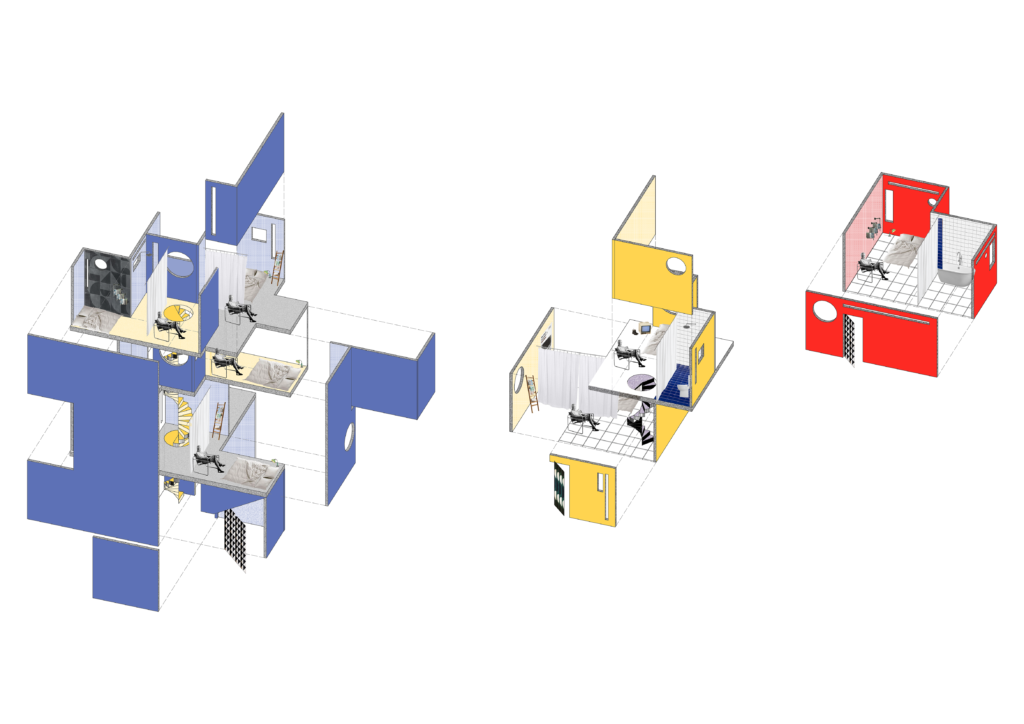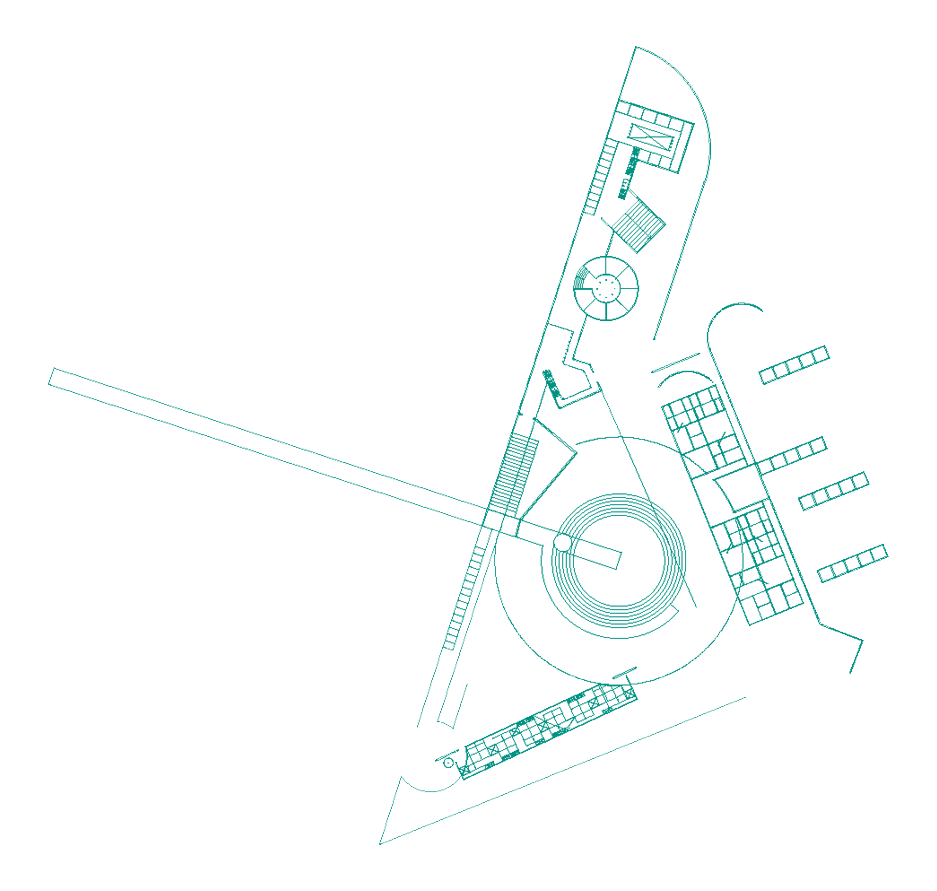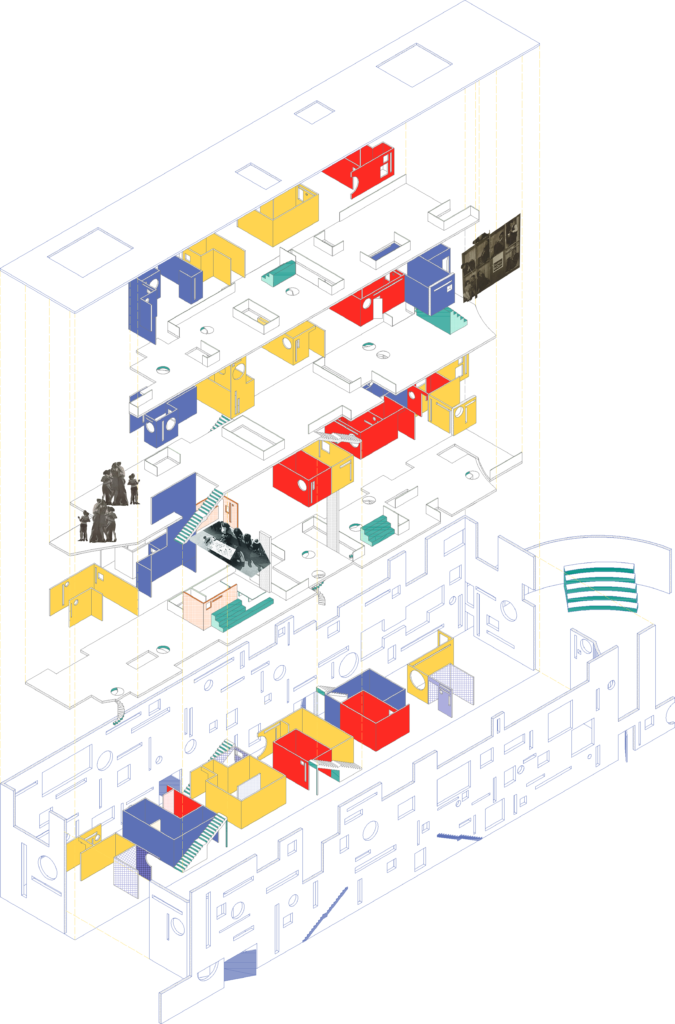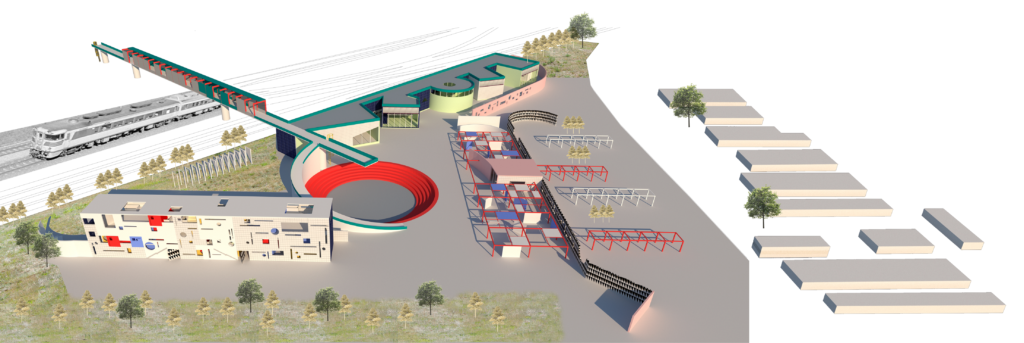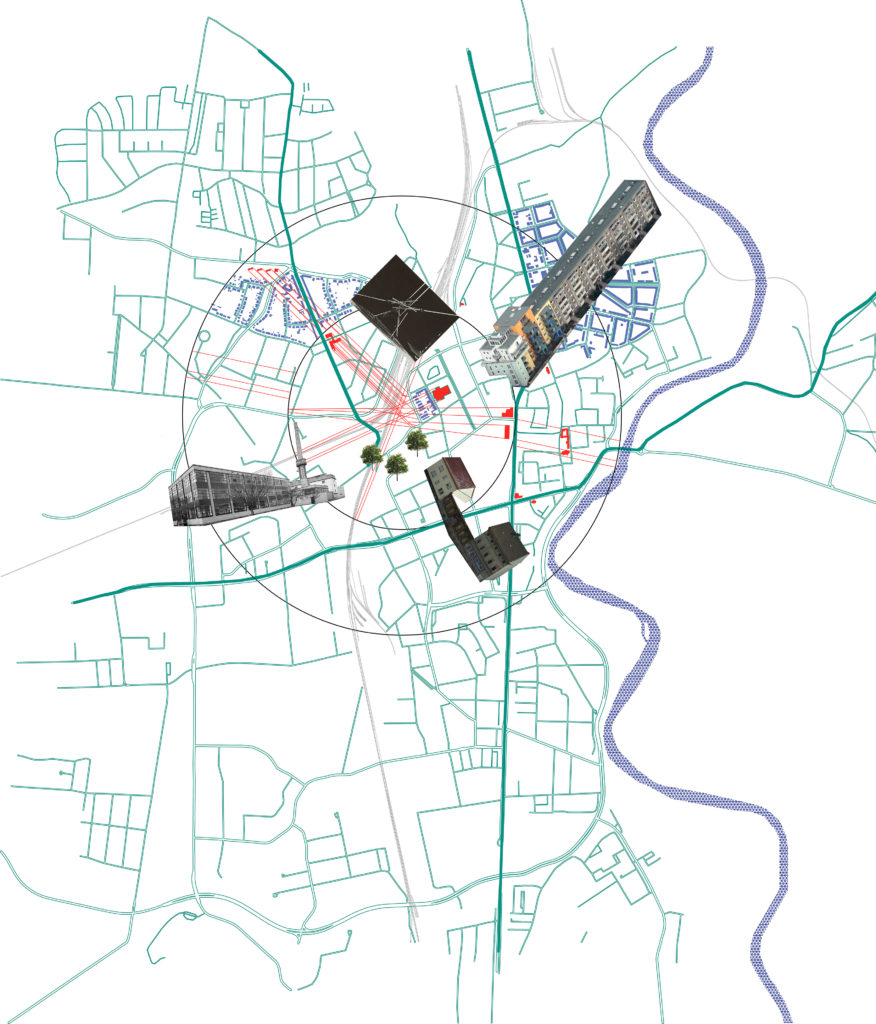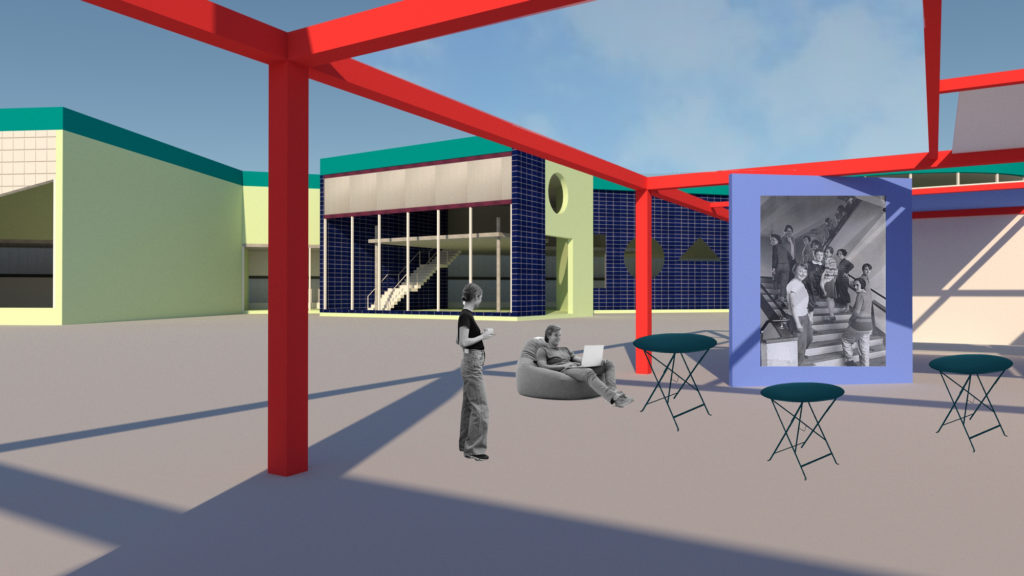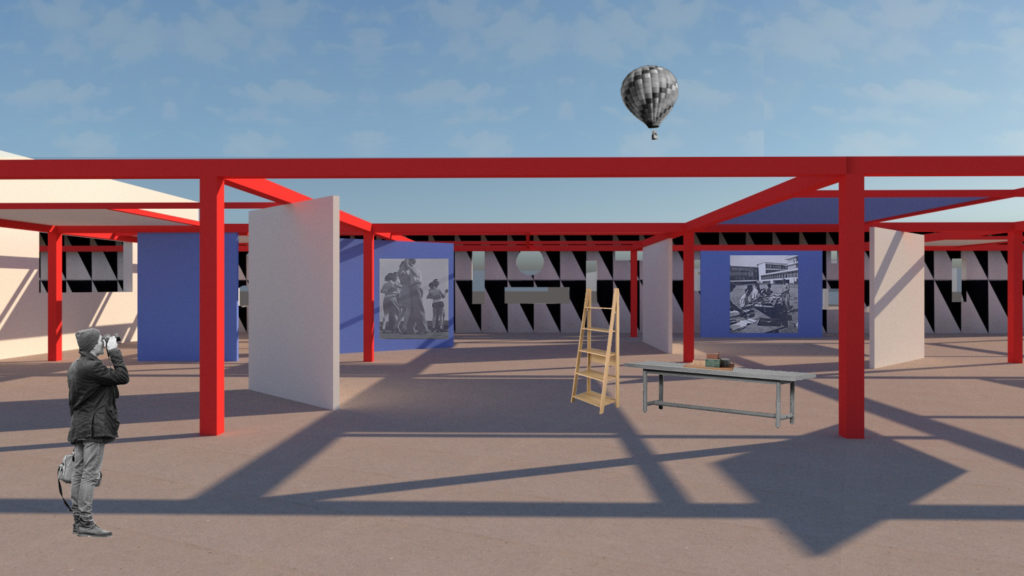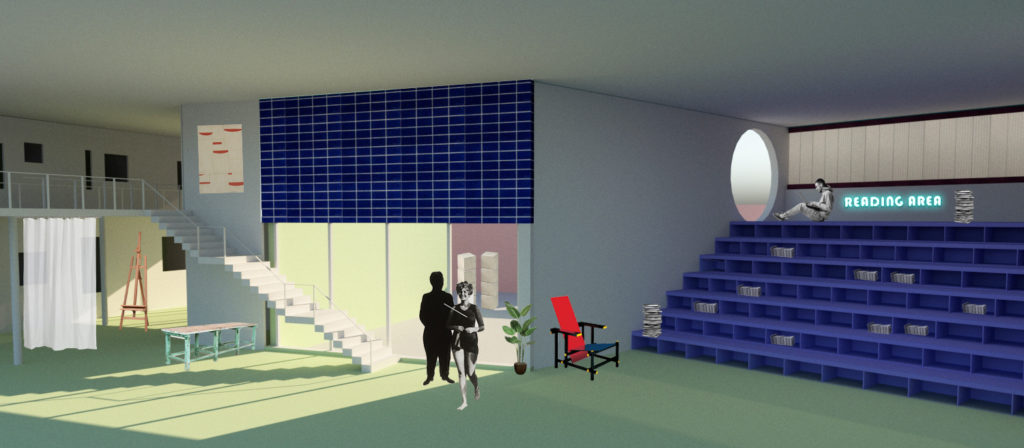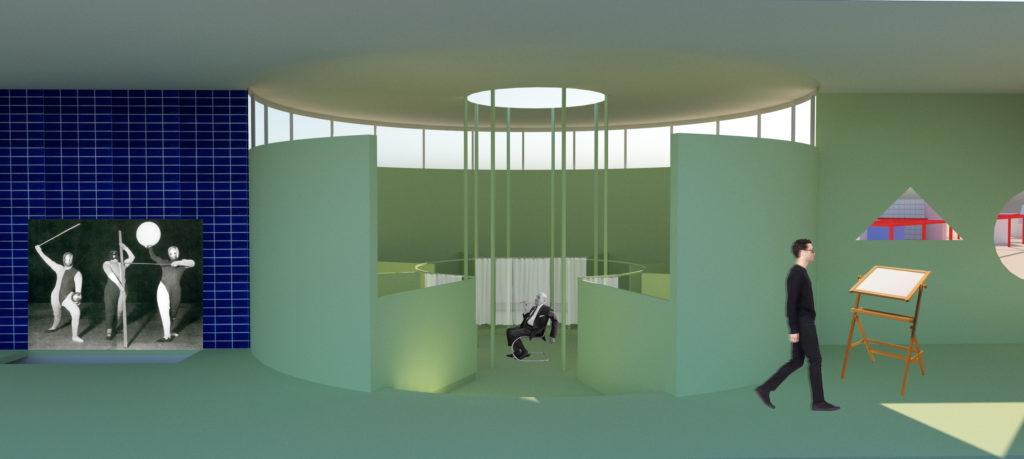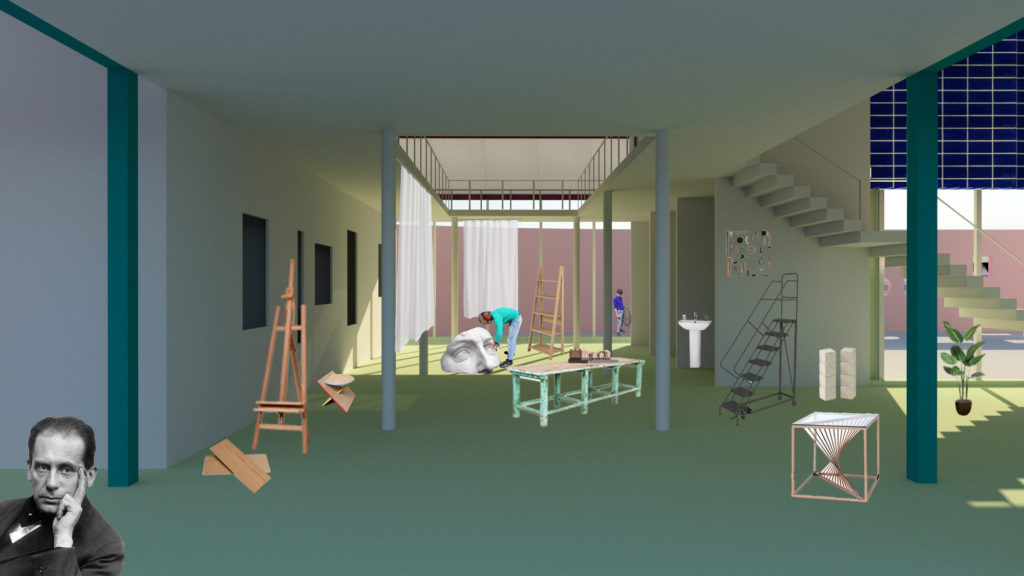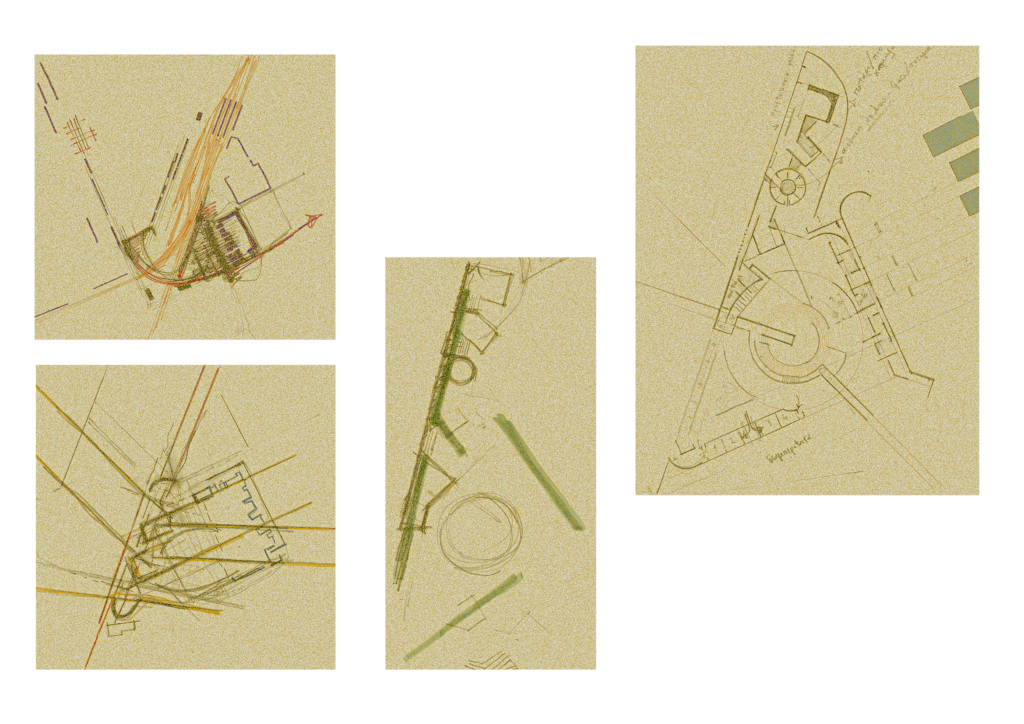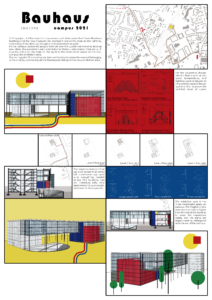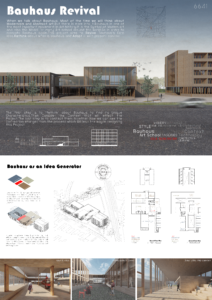RETHINK BAUHAUS #1857
Dessau is a city that has a fragmented urban structure consisting of a wide collection of typologies and changing densities. The city could be read as a mosaic of different historic layers, which seem to be unrelated, creating an incoherent cityscape with massive undefined public spaces. The project site is located in a central place on the fringes of the city’s train tracks, which split the city in half. Taking all of these into consideration the proposal aims to create an urban “magnetic field” that stands as a cultural meeting point, where people learn and socialize in a flexible complex of buildings dedicated to architectural expression. The starting point of the designing process is set by two different circles that define the influence that the important buildings of Dessau have on the project site. The inner circle is identified as the influence of the adjacent surroundings, whereas the outer circle indicates the influence that distant important buildings have on the project site. So by having different groups of lines we begin to design a new system that aims to create new urban flows and connections that unite the separated sides of the city.
School of Architecture_ unique spaces that create a chain of unique experience.
A main corridor that distributes students to spaces of different activities.
- A flexible workshop space where students get their hands dirty. There they work on their architecture models and their work of arts.
- A staircase library that doesn’t stand as a traditional quiet library, but a space either for chilling while reading or a place to hold lectures.
- Α “roundabout” of classes separated by curtains in order to create softer boundaries and stronger bonds between students that learn and work together.
- The interior auditorium where lectures and projections take place.
- Café/working spaces_ Some days students seem to be bored so they use this space to reboot. They work outside and their ideas get refreshed.
- This is a flexible area where students spend their free time or take a break from work while drinking coffee from the cafeteria.
- A bridge that stands as an urban exhibition.
A school dedicated to familiarize students with the basic elements of architecture such as scale, public-private. A school that provides working collectively and gives the chance to students to understand standard relations of architecture through experiencing the space and being active members of a group.
Dorms_ living alone//living together// living “semi-alone semi-together”
Chilling areas_ the way back home stands as a chilling road where students can play and spend their free time
The project aims to recreate one of the standard typologies of Dessau TYPOLOGY 2 (analysis map). In the recreation of this typology the central space becomes meaningful and acquires its own existence. This space becomes the Central Auditorium.
The central auditorium_ This is actually not a traditional auditorium this a “come together” space. Students are welcome to use this space as they want. It is a flexible space, others chill there, others study there or work, others eat. It is such a flexible space that could turn spontaneously from a working area to a public fiesta.
In this case, form doesn’t follow function.
The new Bauhaus is based on creativity and self expression. Students are encouraged to explore any aspect of architecture they wish using any kind of method they want from analog means to new means of technology. Others wish to explore architecture meant to be built in Mars while others wish to learn all about history and theory of architecture, having the ambition to promote new architectural theories of the future.
ATLAS / elements of architecture
01./ s t a i r s _
Ascent-descent
Articulation
Vertical connection two sites or more
Resting point – spot
Different perspectives and points of view
Creating space underneath
Theatrical
Step-levels
02./ w i n d o w _
eyes of the building
Framing horizon _ portrait
Connection between two realms
Point of view
Ventilation & light
Creating indoor façades
Interaction between the inside and the outside world
In-between inside-outside boundaries
03./ d o o r _
Access
Entrance – Exit
Privacy-safety / Freedom-transparency
Threshold & Transition
04./ c o r r i d o r – p a s s a g e _
movement
Connecting spaces/uses and other passages
Discovery
Spreading – distribution of movements
In-between space/zone
05./ w a l l _
defines an area
Divides or encloses
Carries a load
Provides security/shelter
Creates a border/boundary
06./ c e i l i n g _
creates spaces underneath and above / 2 in 1
Indirect lighting
07./ c o l u m n – p i l l a r s _
levitation – pilotis
Supportive or decorative use
Raise the architectural volume
08./ c u r t a i n _
smooth, blurred, ephemeral, obscure boundaries between private and public spaces
Shading
Creating smaller spaces
Transformation
